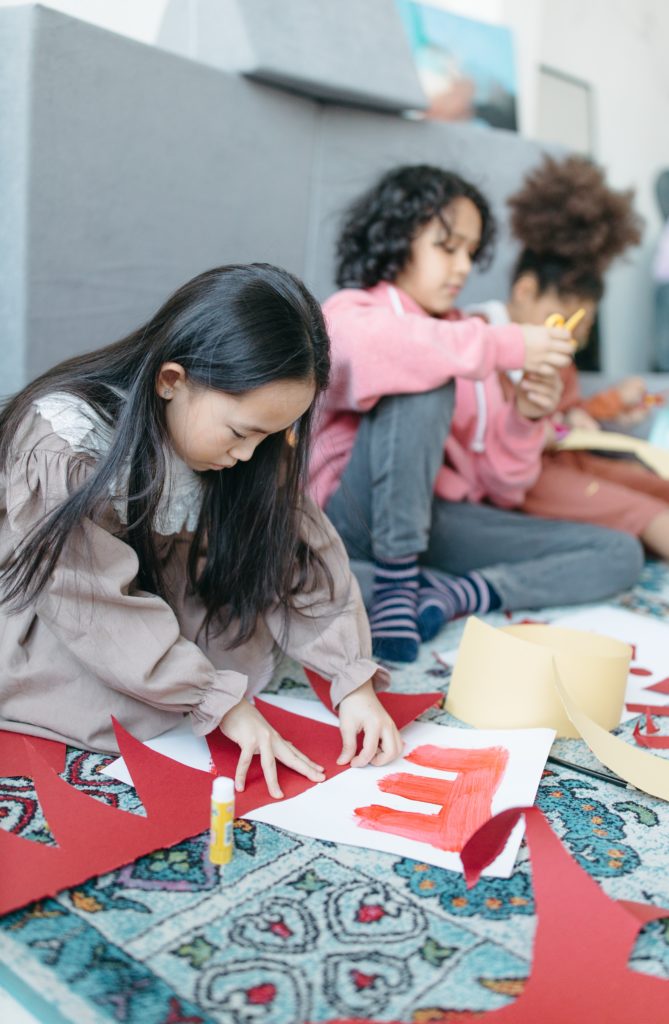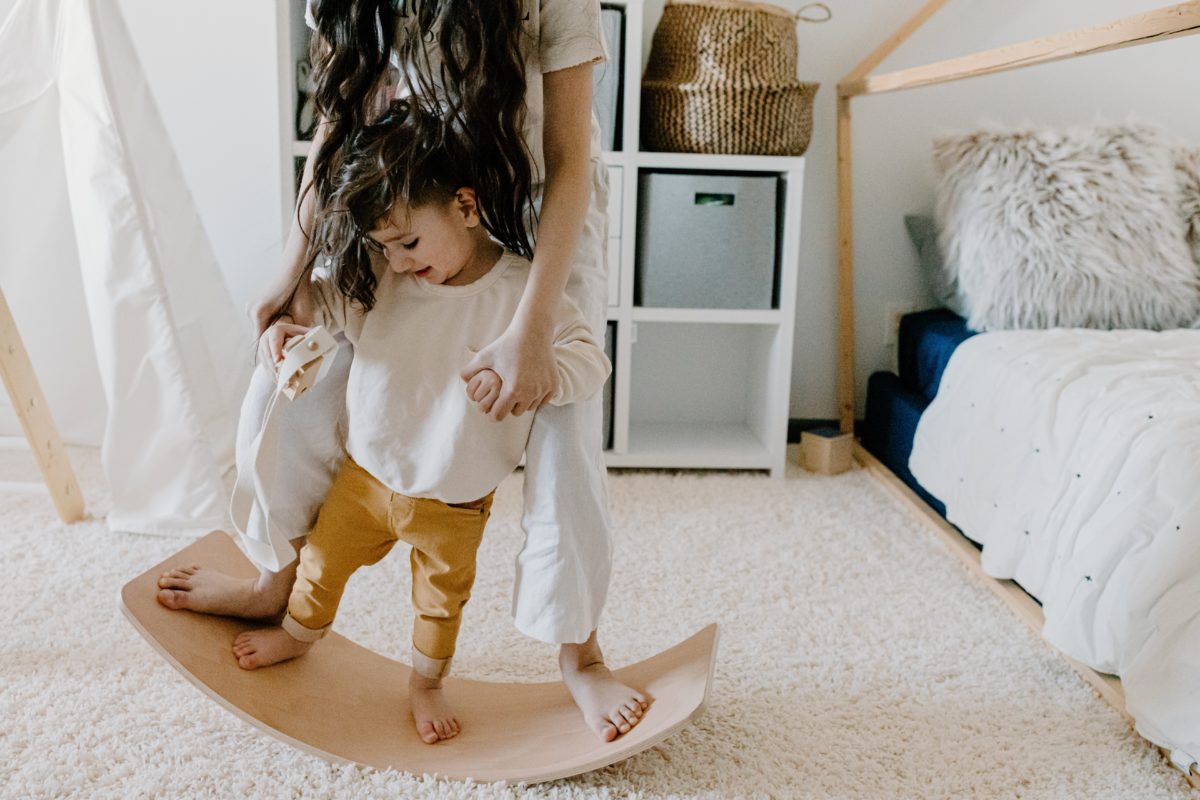Montessori Made Practical: Four Essential Home Approach Concepts
Discover the essence of Montessori education applied to your home environment with “Montessori Made Practical: Four Essential Home Approach Concepts.” Explore how to integrate Montessori principles seamlessly into your daily routine, fostering independence and a love for learning in your child. Unlock a wealth of insights and practical tips to create a nurturing and enriching home environment that aligns with the Montessori philosophy.
This comprehensive guide not only introduces the core Montessori concepts but also illustrates how they seamlessly integrate into your family’s lifestyle. Embrace the art of observation, prepare engaging activities that cater to your child’s interests, and establish routines that respect their natural rhythms. With insights into fostering a love for order, promoting sensory exploration, and cultivating practical life skills, “Montessori Made Practical” empowers you to create a home environment that supports your child’s holistic growth. Elevate your parenting journey with this resourceful guide that bridges the gap between Montessori theory and real-world application, making learning an inspiring and joyful journey for your child.
Nurturing Independence: Applying 4 Essential Montessori Home Approach Concepts
In the realm of education, the Montessori approach has garnered acclaim for its emphasis on fostering independence, curiosity, and a lifelong love for learning in children. This philosophy extends beyond the classroom, inviting parents to integrate Montessori principles into their homes. “Montessori Made Practical: Four Essential Home Approach Concepts” serves as a guiding light, illuminating the path toward creating a nurturing environment that aligns with Montessori principles. In this blog, we will delve into four of these essential concepts, exploring how they can empower parents to cultivate self-reliance and holistic growth in their children.
1. Prepared Environment
Central to the Montessori philosophy is the concept of a prepared environment. The idea is to create a space that is carefully designed to encourage exploration, independence, and learning. Whether it’s arranging shelves at a child’s height, offering open-ended toys that promote creativity, or fostering a sense of order by clearly organizing materials, the prepared environment becomes a catalyst for self-directed learning. By imbuing your home with an environment that invites curiosity and independence, you empower your child to engage in activities that capture their interest and ignite their innate desire to learn.
This concept encourages parents to thoughtfully arrange their homes to facilitate self-directed exploration and learning. By carefully selecting and organizing materials that cater to a child’s developmental stage, parents can create an environment that sparks curiosity and empowers children to engage in independent, purposeful activities.
This approach not only instills a sense of ownership over their learning but also cultivates essential life skills such as decision-making and problem-solving. As parents embrace the concept of a prepared environment, they provide their children with a canvas for self-discovery, igniting a lifelong passion for learning and setting the stage for a confident and capable future.
2. Practical Life Activities
“Help me do it myself” is a mantra often associated with Montessori practical life activities. These tasks are purposefully designed to mimic real-world activities and develop essential life skills. From pouring water and buttoning clothes to slicing fruits and tidying up, these activities not only enhance fine and gross motor skills but also instill a sense of accomplishment and self-reliance in children. By incorporating practical life activities into your daily routine, you not only nurture your child’s independence but also lay a strong foundation for essential life skills that will serve them well into adulthood.
The beauty of Practical Life Activities lies in their alignment with a child’s developmental needs and interests. These activities reflect real-world tasks and, in doing so, enable children to feel like valued contributors to their families. Through the act of pouring their own drink, setting their place at the table, or caring for plants, children develop coordination, focus, and a sense of accomplishment. Such tasks also serve as a foundation for more complex skills, nurturing self-discipline and a can-do attitude. In embracing Practical Life Activities, parents not only empower their children to become self-reliant individuals but also provide them with essential life skills that extend far beyond the formative years, laying the groundwork for a capable and confident future.
3. Freedom of Choice
Montessori encourages children to make choices within the limits set by their environment. This principle is rooted in the belief that allowing children to choose their activities cultivates a sense of ownership over their learning journey. By offering a variety of developmentally appropriate activities and allowing your child to select what interests them, you honor their individuality and innate curiosity. This freedom of choice not only empowers children but also enables them to become active participants in their own education, fostering a genuine passion for learning.
Incorporating the freedom of choice within the home environment is a deliberate invitation for children to explore their interests and passions. As children engage in selecting activities that resonate with them, they cultivate a sense of ownership over their learning journey. This empowerment fosters a genuine enthusiasm for discovery and problem-solving. By valuing their preferences and offering a degree of autonomy, parents affirm the uniqueness of each child and lay the foundation for a lifelong love of learning. The freedom of choice nurtures confidence, decision-making skills, and the ability to engage with activities in a focused and sustained manner, ultimately shaping children into self-motivated and curious learners who are equipped to navigate the complexities of the world around them.

4. Observation and Responsive Parenting
Montessori places great emphasis on the role of observation in understanding a child’s developmental needs and interests. By carefully observing your child’s preferences, strengths, and challenges, you gain valuable insights that inform your approach to parenting and education. Responsive parenting, a cornerstone of Montessori, involves tailoring your interactions and activities based on your child’s cues and interests. This personalized approach allows you to provide the right support, guidance, and materials at the right time, facilitating your child’s growth and development in a holistic manner.
Responsive parenting in the Montessori context involves flexibly adjusting our approach based on our observations. Rather than imposing a fixed curriculum or schedule, we tailor our interactions to align with our child’s rhythm and readiness. This adaptable approach ensures that our children’s learning experiences are engaging and meaningful, fostering a deep sense of ownership over their education.
By offering guidance and materials that match their developmental level and interests, we empower our children to take charge of their learning, enhancing their confidence, self-motivation, and love for exploration. In essence, observation and responsive parenting become the cornerstone of a dynamic and nurturing Montessori home, where children flourish as active participants in their own growth journey.
Conclusion
As parents, the application of Montessori principles in the home environment empowers us to create an atmosphere that nurtures our children’s natural curiosity, fosters their independence, and ignites their love for learning. By embracing the prepared environment, practical life activities, freedom of choice, and the power of observation, we embark on a journey that not only enhances our children’s cognitive development but also nurtures their emotional well-being and self-confidence. “Montessori Made Practical: Four Essential Home Approach Concepts” serves as a guiding compass, enabling us to navigate this transformative approach to parenting and education, ultimately laying the groundwork for a bright and self-assured future for our children.

